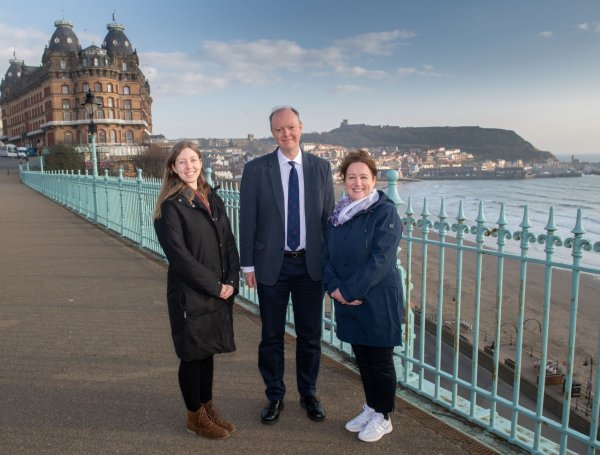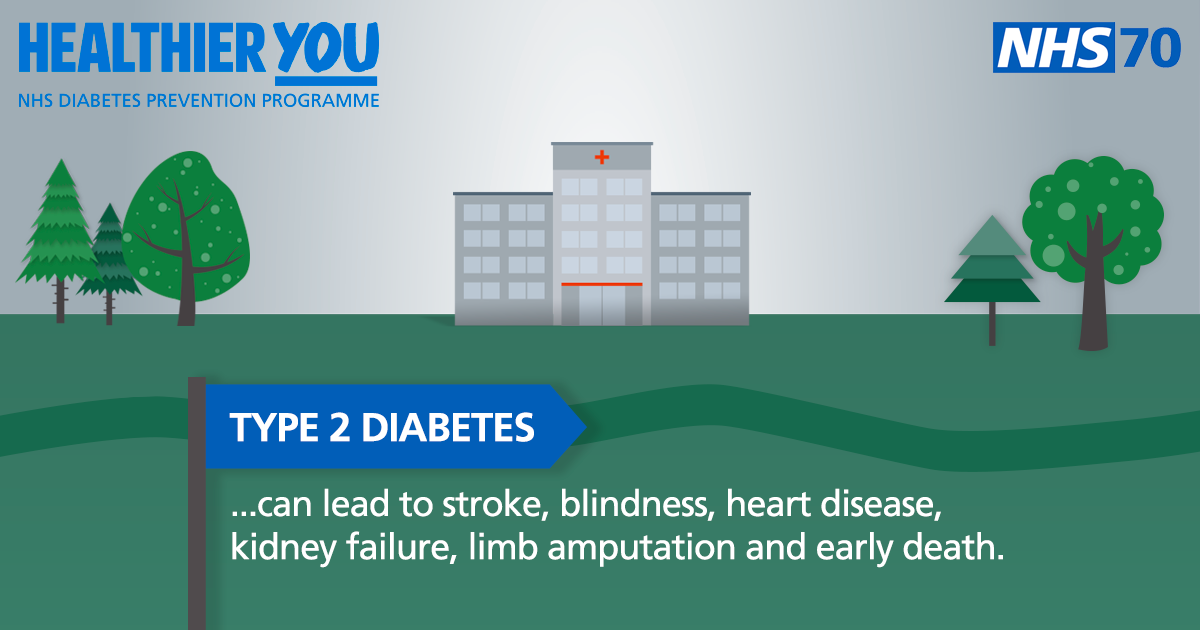Posts Tagged ‘public health’
Sir Chris Whitty steps out along the coast on a visit to Scarborough
Professor Sir Chris Whitty, England’s chief medical officer, had a bracing introduction to Scarborough on his fact-finding visit as he walked part of a coastal route with Louise Wallace North Yorkshire’s Director of Public Health. On a bright and breezy morning he stepped out on a Discoveries On Your Doorstep route around Scarborough Castle and…
Read MoreCoronavirus latest
SEE ALSO: Easy Read information about the Coronavirus
The NHS in Scarborough and Ryedale and Public Health England (PHE) are extremely well prepared for outbreaks of new infectious diseases. The NHS has put in place measures to ensure the safety of all patients and NHS staff while also ensuring services are available to the public as normal.
The risk to the general public is moderate. If you have arrived back to the UK from mainland China, Thailand, Japan, Republic of Korea, Hong Kong, Taiwan, Singapore, Malaysia or Macau within 14 days, follow the specific advice for returning travellers.
Anyone who has travelled to China or places listed above in the last 14 days and develops symptoms of cough or fever or shortness of breath, should immediately:
- Stay indoors and avoid contact with other people as you would with the flu
- Call NHS 111 to inform them of your recent travel to the country
Information for the public is available here.
Like the common cold, coronavirus infection usually occurs through close contact with a person with novel coronavirus via cough and sneezes or hand contact. A person can also be infected by touching contaminated surfaces if they do not wash their hands.
The risk of being in close contact with a person with coronavirus or contaminated surfaces is very low at the current time, as members of the public who have visited Wuhan, Hubei province, China are currently in isolation.
Testing of suspected coronavirus cases is carried out in line with strict regulations. This means that suspected cases are kept in isolation, away from public areas of the hospital and returned home also in isolation. Any equipment that come into contact with suspected cases are thoroughly cleaned as appropriate. Specific guidance has also been shared with NHS staff to help safeguard them and others. Patients can be reassured that their safety is a top priority, and are encouraged to attend all appointments as usual.
Everyone is being reminded to follow Public Health England advice to:
- Always carry tissues with you and use them to catch your cough or sneeze. Then bin the tissue, and wash your hands, or use a sanitiser gel.
- Wash your hands often with soap and water, especially after using public transport. Use a sanitiser gel if soap and water are not available.
- Avoid touching your eyes, nose and mouth with unwashed hands.
- Avoid close contact with people who are unwell.
You can find the latest information and advice from Public Health England here.
Read MoreHealth and care partners back ‘Blood in Pee’ campaign
Published on Jul 26, 2018
Health and care partners in North Yorkshire are urging people to be aware of the early signs of bladder and kidney cancers and to go to their doctor if they see blood in their pee – even if it’s just the once.
‘Blood in pee’ is part of the national Be Clear on Cancer (BCOC) campaign from Public Health England in partnership with the Department of Health, NHS England and Cancer Research UK. Around 300 people in North Yorkshire are diagnosed with bladder or kidney cancer each year and approximately 120 people die.
NHS Scarborough and Ryedale CCG Governing Body Associate GP Member, Dr Jenni Lawrence, said: “As a GP in the Scarborough and Ryedale District, I’ve been involved in work to improve early diagnosis rates for bladder and kidney cancers. An important part of this is our blood in pee one stop clinic in Malton. Patients just have to see their GP to get a referral, and then go along to the clinic where they can receive all the tests needed in one place – and get an answer quickly.”
Bladder and kidney cancers can affect people of all ages, but the risk of these cancers increases as people get older and are most common in those over 50.
Blood in pee is a key symptom for both bladder and kidney cancer. Other bladder cancer symptoms include a urinary tract infection (cystitis) that is difficult to treat or comes back quickly after treatment and pain when peeing. Other kidney cancer symptoms include a pain in the side below the ribs that doesn’t go away, and weight loss.
County Councillor Caroline Dickinson, North Yorkshire’s Executive Member for Public Health, Prevention and Supported Housing, said: “The aim of Be Clear on Cancer campaigns is to increase public awareness of key cancer symptoms and to encourage people with those symptoms to see their GP early. This new campaign stresses how important it is if you notice blood in your pee, even if it’s ‘just the once’, to tell your doctor straight away.
“Blood in pee is a key symptom of both bladder and kidney cancers. The chances are it’s nothing serious, but these cancers are more treatable if they are found early.
“The campaign also asks people to look before they flush the toilet – and to go to see their GP if they notice blood in their pee. You’re not wasting anyone’s time by getting your symptoms checked out. And if you’ve been to the doctor but your symptoms haven’t gone away, go back – they’ll want to know and early diagnosis and treatment could save your life.”
Read MoreNHS Scarborough and Ryedale Clinical Commissioning Group backs NHS recruitment campaign
Published on Jul 16, 2018
NHS Scarborough and Ryedale Clinical Commissioning Group is backing a national campaign which aims to address staff shortages in the NHS.
The priority is to increase recruitment into the NHS, and improve the retention of existing staff.
Key areas currently facing the worst shortages including mental health, learning disability and community and general practice nursing, will be prioritised.
Our CCG Chairman, Dr Phil Garnett, said: “Remedying the staff shortages in GP surgeries and hospitals is one of the biggest challenges we face.
“As a CCG, we’re already doing lots to attract new doctors to work in our local practices and we’re expanding the range of healthcare professionals people can see.
“There are significant workforce challenges at Scarborough Hospital, so any measures that can be taken to address those are to be welcomed.”
The campaign launched on 3 July 2018 and has been designed to increase positive perceptions and pride in working within the NHS.
The campaign is running across TV and radio, and is also being promoted through digital and social media using the #wearetheNHS.
Read MoreNHS Scarborough and Ryedale CCG supports Diabetes Prevention Week
Published on Apr 20, 2018

Scarborough and Ryedale residents are being encouraged to eat healthy foods and be more active to reduce their risk of Type 2 diabetes, with a major programme of work to support people with diabetes now under way.
It is thought nearly 12,000 residents in Scarborough and Ryedale are currently at risk of developing Type 2 diabetes, which can lead to other serious conditions including stroke, heart disease, limb amputation, blindness and early death.
Treatment of diabetes costs the NHS more than £8 billion every year – that’s 10 per cent of the entire budget – and one in six patients in hospital has diabetes.
Around nine in 10 people with diabetes have Type 2 diabetes which is closely linked to obesity and yet is largely preventable by eating healthily, being more active and losing weight.
GPs and other healthcare professionals in Scarborough and Ryedale are using Diabetes Prevention Week (16-22 April) to encourage residents to improve their future health.
NHS Scarborough and Ryedale Clinical Commissioning Group (CCG) Clinical Lead for Diabetes, Dr Chris Ives, said: “Since 1996 the number of people with diabetes in the UK has more than doubled from 1.4 million to 3.3 million and it is estimated that 5 million people are now at risk of developing Type 2 diabetes.
“It’s a ticking timebomb for the NHS, yet Type 2 diabetes is largely preventable through lifestyle choices.”
Meanwhile, a programme of work to provide extra support to patients with diabetes is now and up and running.
NHS Scarborough and Ryedale CCG in partnership with Vale of York CCG collaborated with York Teaching Hospital NHS Foundation Trust to secure around £430,000 through NHS England’s Diabetes Transformation Fund.
One element of the programme is to review specific cohorts of patients with diabetes and offer targeted support to those people who have higher than recommended HbA1c levels, blood pressure and/or cholesterol that could lead to additional complications.
The additional support may also include a specialist GP review, psychology and social worker intervention, as well as medicines management help.
You can check to see if you are at risk of type 2 diabetes at www.diabetes.org.uk/risk
Read More

